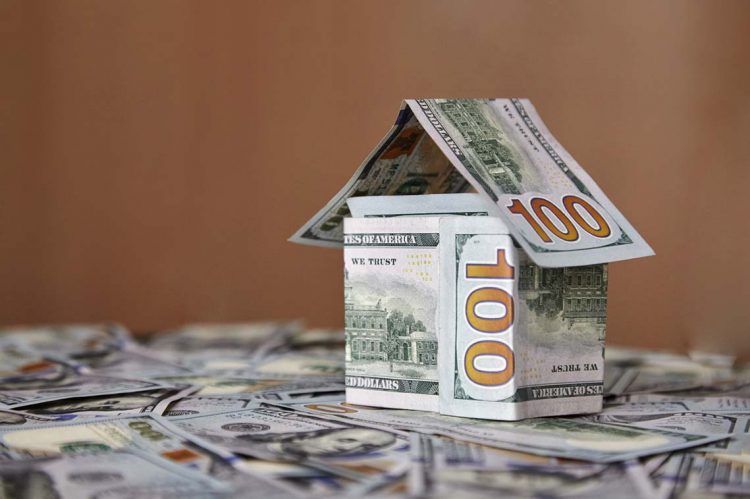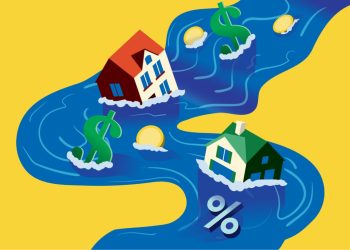Homeownership is the largest source of wealth among families, with the median value of a primary residence worth about 10 times the median value of financial assets held by families. Housing wealth (home equity or net worth) gains are built up through price appreciation and by paying off the mortgage. At the national level, a homeowner who purchased a single-family existing home 10 years ago would have gained $225,000 in home equity if the home were sold at the median sales price of $363,100 in 2021 Q3.
Home equity gains in the past 5, 10, 15, 30 years
Homeowners who sell their property typically stay in their home for 10 years. Nationally, as of 2021 Q3, a homeowner who purchased a single-family existing-home 10 years ago at the median sales price of $169,000 is likely to have accumulated $225,000 in home equity or housing wealth if the home were sold at the median sales price of $363,100 in 2021 Q3. The gains in home equity come from paying down the mortgage and from appreciation in home prices. Breaking down the $225,000 in home equity gains over a 10-year period, 86% of the gains come from price appreciation of $193,600 and principal payments totaling $31,300. Over a 10-year period, home prices have increased 7.9% annually, a stronger appreciation compared to the 4.2% annual price pace in the past 30 years.
The past five years have seen increasingly rapid price appreciation. Nationally, median single-family existing-home sales rose 8.5% annually from 2016 Q3 through 2021 Q3. A homeowner who purchased a typical home five years ago would have accumulated $144,400 in home equity, of which $121,800 are from price appreciation, or 84% of total home equity gains.
While home prices fell about 30% from the peak level in 2006, home prices have rebounded, with the median single-family existing-home sales price rising at an annual pace of 3.2% from 2006 Q3 through 2021 Q3. A homeowner who purchased a home 15 years ago would typically have accumulated $193,300 in home equity, of which $137,700 is price appreciation.
Over a 30-year period, a homeowner who purchased a typical single-family home would likely have accumulated $354,400 in home equity, with $258,700 in housing wealth home price gains accounting for about three-quarters of the gain, with the typical existing-home sales price (median sales price) increasing by 4.2% annually over a 30-year period.
Homeowners in 15 metro areas likely to have accumulated home equity gains in 10 years enough to purchase a typical single-family home
In 15 metro areas—14 of which are in the West region—homeowners likely accumulated enough home equity to purchase a single-family existing home at the current price of $363,100. The home equity accumulated from these markets means that homeowners in these markets have the ability to use the home equity to purchase a primary, vacation, or second home for cash or make a sizable down payment on their purchases in metro areas where the price of a home is less than the total home equity (home equity gains plus the initial down payment).
Homeowners in 23 metro areas typically have gained at least $500,000 in housing equity in 30 years
Because home prices tend to appreciate over the long run and due to the principal payments, wealth grows over time. Over a 30-year period when single-family home prices rose at an annual pace of 4.2%, home equity gains were at least $500,000 in 23 metro areas, 15 of which are in the West region.
In four West region metro areas, the gains are over $1 million: San Jose-Sunnyvale-Sta. Clara ($1.6 million), San Francisco-Oakland-Hayward ($1.3 million), Anaheim-Sta. Ana-Irvine ($1.1 million), and Urban Honolulu ($1 million).
Again, these significant home equity gains can enable homeowners to purchase a home for cash in less expensive metro areas, such as in Florida, which is a popular destination for retirees.
5-year home price appreciation outpaces wage growth in 97% of 182 metro areas
Rising home values benefit existing homeowners, but home prices need to rise in line with income growth so homes remain affordable and more households are able to reap the benefits of homeownership. Among 182 metro areas, prices over a 5-year period rose faster than wages in 97% of metro areas, except for several metro areas in Illinois (Champaign-Urbana, Peoria, Decatur) and Shreveport-Bossier, Louisiana.
Gay Cororaton is a Senior Economist and the Director of Housing & Commercial Research with the Research Group of the National Association of REALTORS®.
To view the full report, click here.












